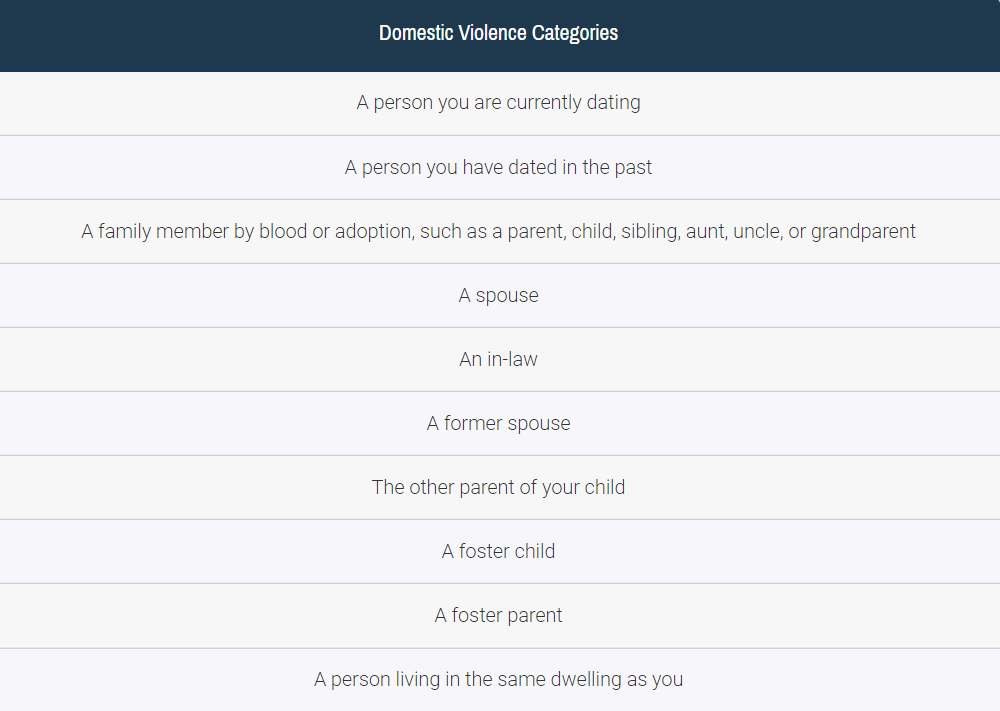Domestic Violence
Texas law recognizes three different crimes of domestic violence: Domestic Assault, Aggravated Domestic Assault, and Continuous Violence Against the Family. While continuous violence against the family is defined under its own statute, domestic assault and domestic aggravated assault are prosecuted under the assault and aggravated assault statutes. In other words, there are no separate offenses for domestic assault or domestic aggravated assault, but you will generally be charged with a more serious class or category of offense if you commit an act of domestic violence.
Convictions for domestic or family violence, including allegations of spousal abuse, can have a serious impact on your life and your family’s life. As a criminal defense lawyer, I never judge my clients in domestic violence cases. Instead, I am committed to listening to them, supporting them, and fighting to provide them with a strong defense. If you are dealing with domestic violence charges in Lubbock or West Texas, contact me today to schedule a free initial consultation.
Domestic Violence
In Texas, you can only be charged with domestic violence if you commit an offense of violence against a person you are dating or have dated, a family member, or a member of your household. People who fall into these categories include:

Relevant Statutes:
Texas Family Code § 71.0021(b) — Definition of “Dating Relationship”
Texas Family Code § 71.003 — Definition of “Family”
Texas Government Code § 573.022 — Determination of Consanguinity
Texas Government Code § 573.024 — Determination of Affinity
Domestic Assault
Many assaults are acts of violence, but you can also be charged with assault for threats of violence and offensive but non-violent physical contact. Under Texas law, to be charged with domestic assault, your actions must fall into one of the following categories:

Domestic assault can be charged as a Class C misdemeanor, a Class A misdemeanor, or a third or second degree felony, depending on the severity of the offense, the circumstances surrounding the offense, and your criminal record.
Relevant Statute:
Texas Penal Code § 22.01 — Assault
Aggravated Domestic Assault
In Texas, aggravated domestic assault is basically just a more serious version of domestic assault. You can be charged with aggravated domestic assault if, while committing domestic assault, you either:
Cause serious bodily injury; or
Use or exhibit a deadly weapon.
Texas law defines a “deadly weapon” as any of the following:

Aggravated Domestic Assault charges are second degree felonies, except that if you both use or exhibit a deadly weapon AND cause serious bodily injury to a significant other, family member, or a member of the household, you can be charged with a first degree felony.
Relevant Statutes:
Texas Penal Code § 22.02 — Aggravated Assault
Texas Penal Code § 1.07(17) — Definition of “Deadly Weapon”
Continuous Violence Against the Family
Under Texas criminal law, law enforcement can arrest you for continuous violence against the family if you commit at least two acts of domestic assault causing bodily injury within 12 months. Continuous violence against the family is a third degree felony.
You can be charged with continuous violence against the family even if you were not convicted for the domestic assault incidents, and the assaults do not have to be against the same significant other, family member, or member of the household. However, you cannot be convicted of multiple counts if all of the offenses were committed against the same alleged victim or members of the same household.
Relevant Statute:
Texas Penal Code § 25.11 — Continuous Violence Against the Family

